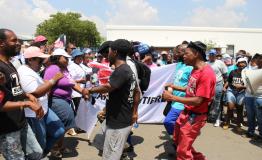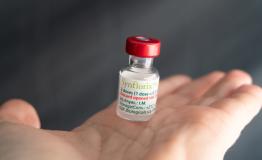

Burkina Faso
We are seeing an increase in violence against civilians, while the health system is often overwhelmed in areas with some attacks on facilities and healthcare workers.
Insecurity and indiscriminate violence have forced close to 1.4 million people in Burkina Faso to leave their homes. Many now live in makeshift shelters with little access to food, water or healthcare services. MSF has significantly increased our activities since 2019 as the displacement crisis has worsened. On top of the violence, the country faces massive healthcare issues such as malaria, food insecurity and poverty.
Our teams also responded to the COVID-19 pandemic in the country in 2020 and 2021.
Our activities in 2021 in Burkina Faso
Data and information from the International Activity Report 2021.
1,038
1,038
€22.2 M
22.2M
1,995
1,995

In December 2021, the number of internally displaced people in Burkina Faso passed the 1.5 million mark, almost eight per cent of the total population, due to an upsurge in the conflict between non-state armed groups and national and international forces. Sahel, Nord, Centre-Nord, Boucle du Mouhoun, Hauts-Bassins and Est were the most severely affected regions.
The deteriorating security situation made it harder for MSF and other humanitarian and medical organisations to access remote areas and for patients to access healthcare; medical facilities were shut down or attacked, ambulances were hijacked, and medical staff were abducted. This forced us to adapt our projects and support in some places in Est, Sahel and Centre-Nord. For instance, we suspended our activities in Foubé in November after the centre we supported was burnt down.
Throughout the year, we continued to provide medical assistance to host and displaced communities across five of the country’s 13 regions, focusing on major health problems, such as epidemics and seasonal malaria peaks, meningitis, hepatitis E, measles, water-borne diseases, mental health and sexual violence. Our teams trucked in water and constructed and renovated boreholes to address the severe shortage of drinking water exacerbated by the ongoing conflict.
We also launched several emergency interventions, in response to outbreaks of violence and displacement, for example, following the attack on Solhan village in the Sahel region on 5 June 2021, the deadliest since 2015. We provided psychological support to those who remained in the village or found refuge in the surrounding communities and referred those requiring further treatment to health centres in Ouagadougou. During these emergency responses, we distributed kits containing cooking and hygiene items and provided medical care through mobile clinics or at health posts built on the spot.
IN 2021

